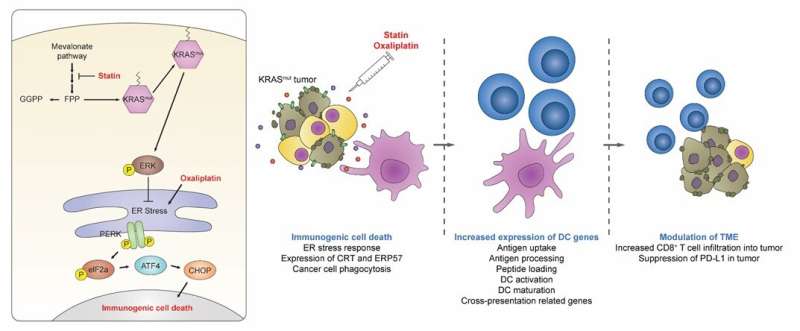
Third-generation cancer immunotherapy, a method of removing cancer using the body’s immune system, has shown remarkable clinical benefits in recent years, giving hopes to many researchers and patients. Cancer immunotherapy generates memory immunity to cancer, and the anticancer effect lasts without causing harm to normal cells. Therefore, the treatment has good outcomes with few side effects. However, due to the complexity of frequently mutated cancer structure and metastasis, there is a limitation that the therapeutic effect is only visible in patients with an average of less than 30%. Furthermore, KRAS-mutated cancer, which accounts for roughly a quarter of all cancers, has a very poor prognosis for cancer patients owing to insufficient treatment options, despite the efforts to develop several treatment methods, including cancer immunotherapy.
Kim In San, head of the theragnosis research center of Korea Institute of Science and Technology (KIST, Director Yoon Seok Jin), and professor Cho Yong Bum and his research team at Samsung Seoul hospital, revealed the mechanisms that can be used to treat impregnable KRAS mutant cancers with statins, currently used for the treatment of hyperlipidemia.
The team gave anticancer drugs and statins intravenously to tumor animal models. The statins selectively killed KRAS mutant cancer and released a variety of signals capable of activating surrounding immune cells. Subsequently, the body’s immune cells targeted cancer cells specifically by collecting the neoantigen from cancer cells and activating T cells . Statins have also shown cancer immunotherapy efficacy by transforming the cancer-immune environment, which is known for its resistance to cancer immunotherapy treatments. This shows the possibility of effective treatment of KRAS mutant cancer, as well as the statin-based drug repositioning strategy currently used to lower blood cholesterol levels.
For successful drug repositioning, the optimal use of a statin should be determined in the future through additional clinical studies, and a method for more effectively delivering statins to cancer tissues should also be investigated. Subsequently, if a clinical trial is successful, it will dramatically reduce the time and cost of developing new drugs, and this will be the first step in resolving a major societal issue where a large number of cancer immunotherapeutic drugs are needed.
Source: Read Full Article
